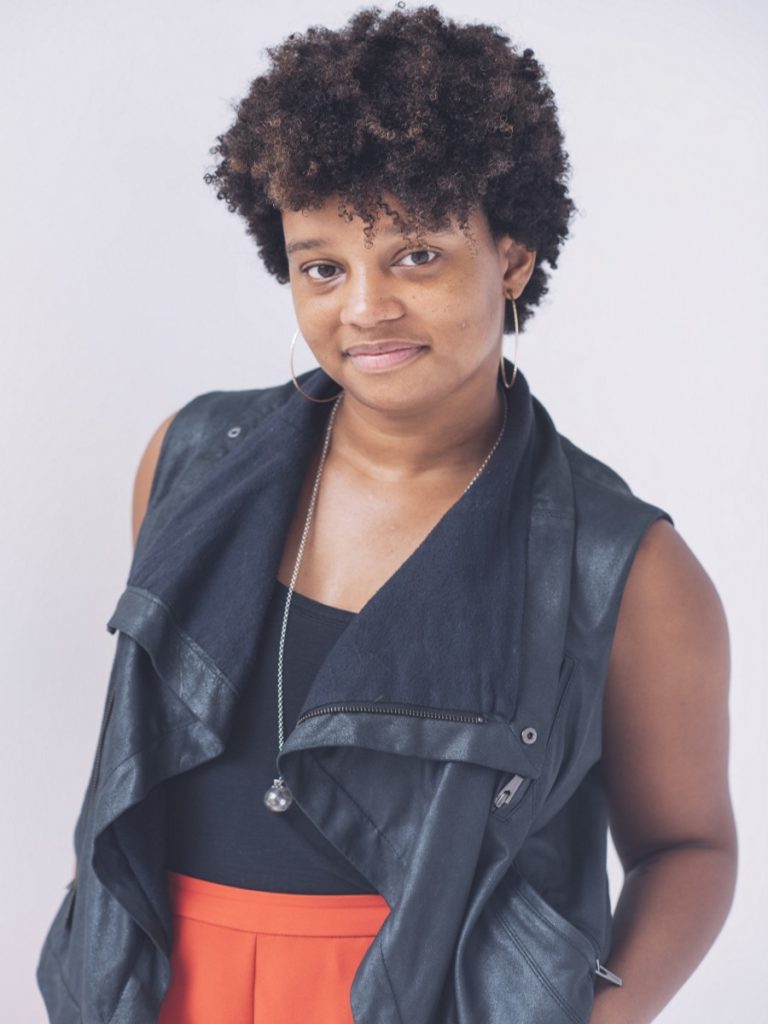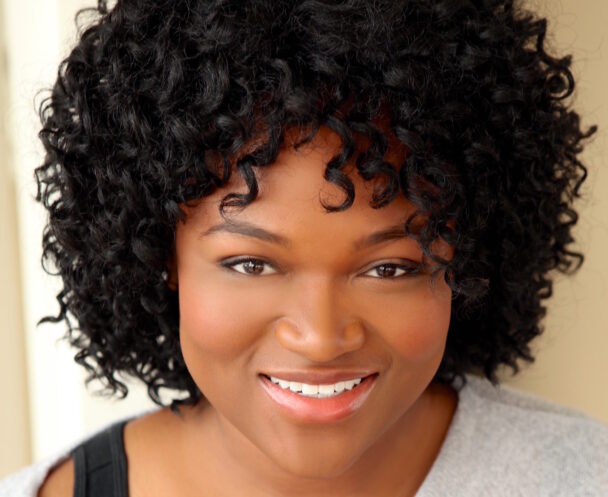Weeks after Cleveland Play House (CPH) announced it was canceling the February world premiere of I’m Back Now: Returning to Cleveland, playwright Charly Evon Simpson issued a statement on Feb. 8 saying that she in fact had pulled the rights to her play, in tandem with director Stori Ayers, who resigned in protest over the way the theatre handled a case of sexual assault. In a statement on Twitter, Simpson wrote, “I said NO to having my play done at Cleveland Play House…I said NO to my play being the site of and excuse for further harm. I said YES to prioritizing the health, well-being, and safety of the I’m Back Now company.”

The story first unfolded on social media, as Ayers wrote in an Instagram post that an actor in the I’m Back Now company had been sexually assaulted in an elevator at Reserve Square, an apartment building where CPH was providing housing for visiting artists. She said that CPH’s leadership team asked the actor to return to rehearsal after their assault without informing Ayers. In an email to the theatre’s interim artistic director, Mark Cuddy, that Ayers shared on Instagram, Ayers wrote that CPH staff had not reported the assault to Ayers because “there was an assumption that the actor who had been assaulted didn’t want me to know, when in fact she did.” Ayers wrote that a stage manager, as well as CPH company manager Betty B. Brooks and artistic producer Derek Green, tried to “maintain unsought discretion” that put “the onus of care management” on the survivor. For their part, the survivor, Jordan Taylor, told American Theatre they believed that CPH leadership had informed Ayers of the incident. Brooks and Goodman did not respond to requests for comment.
“I needed to be a part of the care management for one of our actors after a sexual assault was reported,” Ayers wrote in her email to Cuddy. “I am responsible for fostering and creating a safe environment for all of the artists to do their best work.”
Ayers resigned from her directorial position on Jan. 15, the same day that Simpson pulled the rights to the play. “Learning that the actor was required to continue rehearsing demonstrated a lack of care and understanding for the impacts of sexual assault,” Ayers wrote in the email, in which she claimed that CPH would not provide alternative housing for the actor, though she was assaulted in the apartment complex. Actors’ Equity Association (AEA) later ordered CPH to provide new housing for Taylor after an apparently unrelated break-in occurred at Reserve Square the day after the assault, according to Ayers’s statement. The production’s AEA deputy reported the break-in to the union, prompting the relocation of the artists. (AEA has stated that they cannot comment on active grievances, of which there are two involving I’m Back Now and CPH.)
In a statement released Feb. 10, CPH offered their own version of events, explaining that the assault occurred on a Thursday and that Ayers learned of the incident during a Saturday rehearsal. In their statement, CPH claims they “began to move the entire cast out of the apartment complex the following day,” Sunday. CPH’s statement does not mention the break-in or the involvement of AEA. CPH said via email that they had no further comments on the matter.
Ayers further alleged that Cuddy did not contact Taylor to check on their well-being or offer an apology. In an interview, Taylor (who uses both she/her and they/them pronouns) told American Theatre that CPH’s human resources department did not reach out to them until after the I’m Back Now company had met with the CPH board, and that when the department did, they gave the wrong date for the assault. American Theatre reviewed emails confirming this error; human resources department members Merlin DeTardo and Elaine Lyons did not respond to requests for comment.
Taylor, who has worked with CPH in multiple capacities over a three-year period, said in an interview that the theatre has exhibited a pattern of harassment and mistreatment of Black artists, particularly Black women and trans and gender non-conforming (TGNC) artists. Taylor came to CPH as a member of Case Western Reserve University’s MFA Acting program, which is housed at CPH. In 2021, while they were still a student, Taylor also became an employee of CPH as a member of a newly formed equity, diversity, and inclusion work group, a unique position for a student of the CWRU/CPH program. “I wanted to advocate for MFA students,” Taylor said of her time in the group, adding that students in the program had “a lack of autonomy.”
While they were a student and employee at CPH, Taylor said they experienced “gender-based and power-based violence” involving CPH’s director of artistic inclusion, who used “their position of power to manipulate and impact me in harmful ways.” (Taylor did not name the individual in question, and CPH does not currently list a director of artistic inclusion on their website.) Shortly before graduating, Taylor said they filed a harassment report with the human resources department.

“They handled it very poorly,” Taylor said of the process. “They were not transparent.” She said that the incident and the mismanagement of her report reflects CPH’s “white supremacy culture of protecting image above all else, at the expense of transparency and community.”
Taylor graduated from the CWRU/CPH MFA program in May 2022, just as former artistic director Laura Kepley was preparing to step down; Cuddy was named interim artistic director in June 2022. Cuddy did not respond to several follow-up questions regarding Taylor’s accusations against the theatre’s leadership or CPH’s Feb. 10 statement. The statement concludes by saying that CPH has begun “a process of reviewing our internal policies and procedures, based on the recommendations of an already completed investigation conducted by an external human resources firm paid by CPH.” CPH would not name the human resources firm when asked. The investigation concluded less than a month after Simpson pulled the rights to her play.
CPH said in their statement that upon learning of the assault, they “offered to assist the actor in filing a police report, but the actor declined.” Taylor said that after months of working to implement culture changes as a member of the EDI group, which facilitated anti-racist and anti-bias trainings, they were disheartened that going to the police was the theatre’s first option. “From [my] experiences as a Black person with the police, why would I want to talk to them?” Taylor said. Taylor did, however, file an incident report with CPH to help the theatre get out of their leasing agreement with Reserve Square, which they said the theatre had been trying to do for some time.
Additionally, CPH announced in a Jan. 12 Facebook post that the theatre had received a National Endowment for the Arts (NEA) grant to “support the production of world premiere family drama I’m Back Now: Returning to Cleveland.” CPH told American Theatre that they have not yet received the NEA funds and that they will withdraw the request because the production is not happening as scheduled.
For Taylor, the I’m Back Now process encapsulates years of struggle at an institution where the odds were stacked against them. “I felt culturally isolated, underrepresented, taken advantage of, and disregarded,” Taylor said of their time at CPH.
Ayers said that Simpson ultimately made the decision to pull the rights to I’m Back Now “in agreement and solidarity” with the I’m Back Now company. They both believe that the decision disrupts “white supremacy theatremaking culture.”
“I said no to sending an actress back into rehearsal after a sexual assault,” Ayers wrote. “I said no to working with status quo leadership that doesn’t value Black women artists.”
On January 23, Ideastream Public Media, an NPR affiliate, reported that CPH had canceled their scheduled premiere of I’m Back Now not long after canceling a holiday production, Light It Up!, in October. CPH canceled Light It Up!, which it commissioned in 2021, “at the request of the creators.” CPH initially announced the production’s cancelation without stating that Simpson had pulled the rights to the play.
Simpson, a winner of the Paula Vogel Playwriting Award, previously spoke about I’m Back Now with CPH audiences in a 2021 virtual event. The play, which was commissioned by CPH’s Roe Green Fund for New American Plays, examines the legacy of slavery in Cleveland and is inspired by the life of Sara Lucy Bagby, the last person prosecuted under the Fugitive Slave Act. Simpson was among the first group of writers to be commissioned by the Roe Green Fund.
I’m Back Now was originally scheduled for CPH’s 2021-22 season, but was postponed due to public health concerns raised by the COVID-19 Omicron variant. At the time, members of the CPH/CWRU MFA acting program’s class of 2022 were cast in the play as part of their residency at CPH. Some of the students returned for the planned 2023 production, including Taylor, who wanted to work with Ayers after the director resigned an artistic directing fellowship at the theatre early back in 2020.
“I wanted to have that experience, because Stori would be the second Black director in my entire career, in my life,” Taylor said.

Ayers, an actor and director who co-founded [RARE] Lotus Productions, was previously an artistic director fellow at CPH in 2020. In her statement on Instagram, Ayers said she had resigned her fellowship in response to the CPH board’s desire to retract a statement of anti-racism the theatre had issued after the police murder of George Floyd that year. Ayers’s sudden departure, Taylor said, was “devastating for me, particularly as a Black artist, because I had never seen that kind of representation for Black women.”
In her statement, Ayers described her return to CPH to work on I’m Back Now for 2023 as “a restorative justice attempt.” According to Ayers, CPH is now withholding payment to artists involved with I’m Back Now. Taylor has also requested restitution from CPH to cover the costs of therapy for both the sexual assault and CPH’s handling of the issue. CPH did not respond to requests for comment on these matters.
In 2021, Ayers was directing Dominique Morisseau’s Paradise Blue at the Geffen Playhouse when Morisseau pulled the rights to the play because of verbal abuse by some cast members against Black women on the creative team, and because of the way theatre handled the situation. Ayers said through a representative that she has no further comments on her time at CPH. But in her Instagram post, Ayers acknowledged the pattern of negligence at legacy theatre institutions, adding that standing her ground as an artist protects both herself and her colleagues.
“They didn’t cancel anything,” Ayers and Simpson wrote in their statement. “We said no.”


